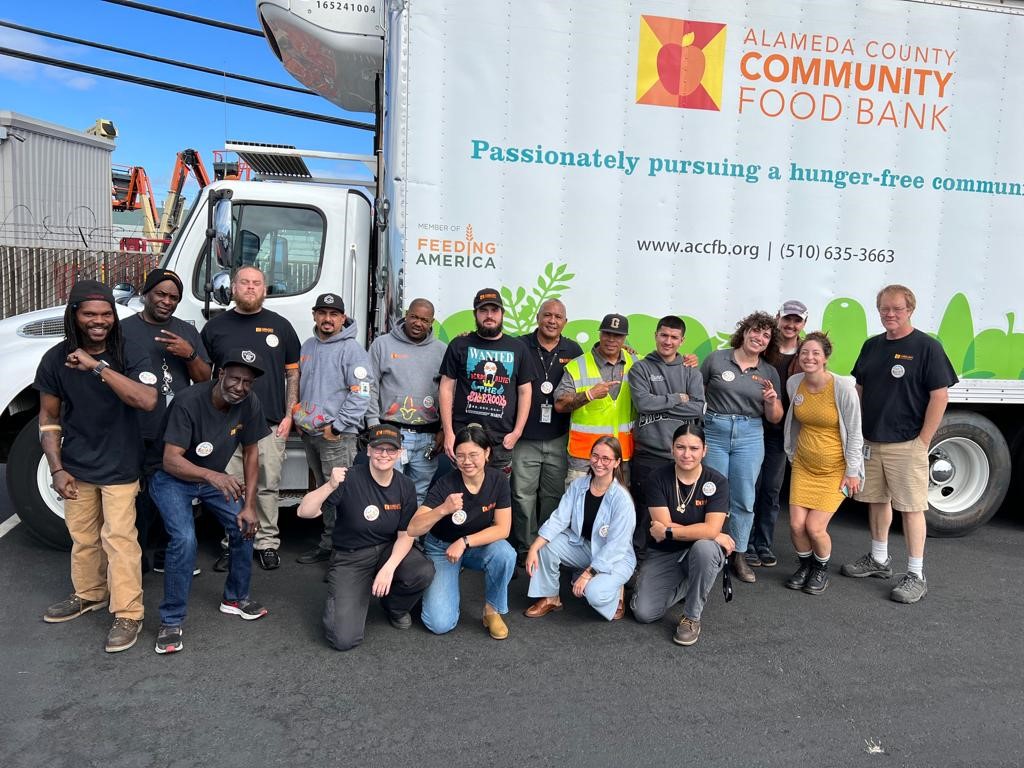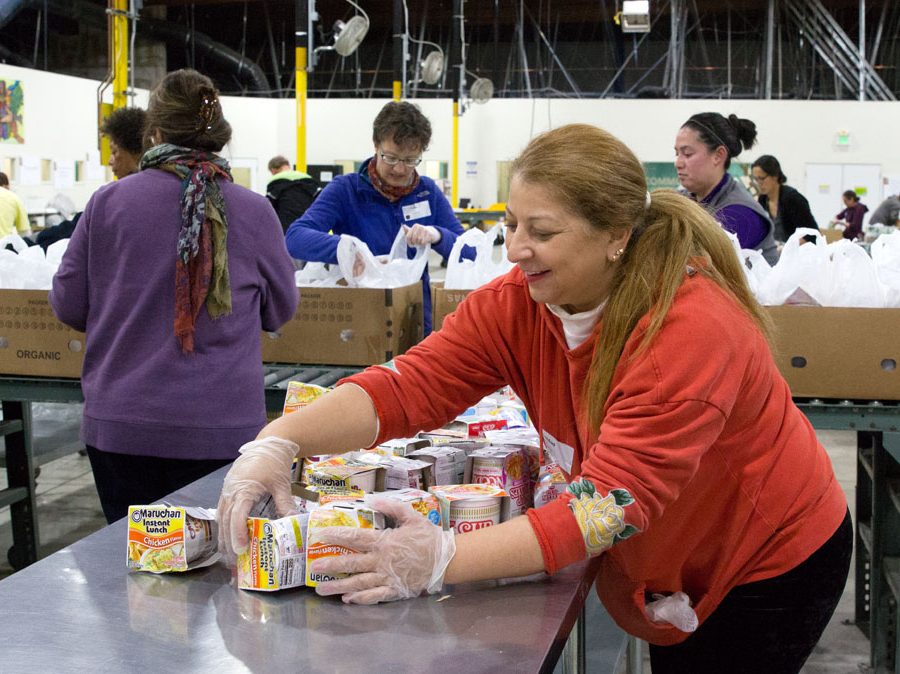Workers at the Alameda County Community Food Bank voted to unionize on Tuesday, with a majority agreeing to join the Office and Professional Employees International Union (OPEIU) Local 29.
Sixty-nine employees participated according to the food bank, with over 80% voting in favor, according to both the union and the food bank. Workers across a range of positions, from warehouse associates to program coordinators, are hoping that unionizing will improve equity as well as increase pay and solidarity among staff.
“We see ourselves all serving one goal: to end hunger in the community,” said Aila Dinglasan, a program coordinator at the food bank who oversees East Oakland partnerships. “We’re coming together to show that solidarity exists within our internal community, too.”
In a statement, the Alameda County Community Food Bank said the organization supports the rights of employees to organize.
“At its core, Alameda County Community Food Bank is made up of nearly 150 passionate staff who have committed their careers to nourishing our neighbors,” Regi Young, the executive director of Alameda County Community Food Bank, said in a written statement. “We firmly believe that Food Bank staff are our most valuable resource, and we are excited to move forward collectively in pursuit of a hunger-free community.”
The food bank distributed 63 million meals worth of food with hundreds of partner sites across the county in 2022, according to its annual report.
Dinglasan, who started out as a volunteer with the food bank in 2014, said the COVID-19 pandemic highlighted long-standing issues within the agency, like low pay and silos among staff.
Soon after the shelter-in-place order in March 2020, calls to the food bank’s daily emergency food helpline increased by roughly 1,000%, according to an impact report published that year by the food bank. Residents continue to need more food. According to the food bank, 1 in 4 residents in Alameda County are experiencing or at risk of experiencing hunger, an increase from 1 in 5 residents before the pandemic.
Dinglasan said that during the COVID-19 lockdowns, many workers at the food bank, from warehouse drivers to warehouse staff, were considered essential workers. Workers made sure food got out the door during a time when an increasing number of residents would otherwise go hungry.
Other food bank workers stayed home to reduce the risk of exposure, highlighting divisions within the Alameda County Community Food Bank, or ACCFB.
“Our most pressing concern is solidarity. There is a significant cultural attitude at ACCFB that divides employees by the nature of our employment,” workers wrote in a letter announcing the move to unionize in October. “Sadly, this has created mistrust among coworkers, which has led to an environment where cooperation has broken down and we are less likely to cohesively work together.”
Ernesto Avalos, who works in the warehouse, said he’s already seen more solidarity among staff since launching the union bid.
“Ever since we decided to make this move, we have become united, and we are talking to each other, getting to know each other better and understanding our struggles together,” Avalos said. “Seeing us coming together as one? That’s a big thing.”

Avalos, who grew up in East Oakland, said he loves seeing gratitude on the faces of families when they receive meals. But he said workers who provide important services need higher wages.
“The cost of everything is going up,” Avalos said. “People feel like they’re not getting paid fairly, but they’re still coming in every day because they have to provide for their family.”
According to a job posting on the food bank’s website, warehouse associates, who help move 30 million pounds of food in and out of the warehouse each year, can start at an hourly wage of $23.59 an hour, or roughly $46,000 annually.
According to a living wage calculator from the Massachusetts Institute of Technology, the living wage for an adult with one child in Alameda County is $48.15.
Alameda County food bank staff now join the growing number of workers at Bay Area nonprofits who have formed unions in recent years. Another agency dedicated to ending hunger across the Bay, the San Francisco-Marin Food Bank, voted to unionize in 2019.
Emily Citraro, a longtime employee at the San Francisco-Marin Food Bank, said that after their successful organizing campaign, workers at the Alameda County Community Food Bank reached out, looking to learn more.
Workers at the San Francisco-Marin Food Bank are now grappling with uncertainty after their agency announced plans last month to reduce services and cut staff.
Even so, Citraro said that without a union workers could have been left in the dark. She said their contract includes a requirement that the organization provide advance notice for layoffs.
“I’m sure if we hadn’t unionized they would just give people pink slips and they would be out the door,” Citraro said. “They wouldn’t have to tell us anything.”
She hopes to see a wave of food banks unionizing.
“There’s no reason that we should be martyrs to the cause and just have to suffer our whole lives just for taking a job to serve,” Citraro said. “Food bankers need unions just like everybody.”
This story was co-published with Oakland North.

